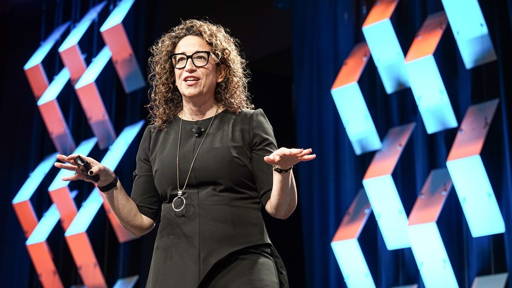The quantity of personal data is increasing at a rapid pace. Whether consciously or not, today, we make them available to dozens of companies by shopping online, using e-mail, or communicating with friends on social media. Many websites or mobile apps can only be used after having agreed to the processing of personal data. In this way, the average person loses control over who uses their personal data, when, for what purpose and to what extent. They circulate almost the entire world. Evermore of the devices connected to the Internet of Things are collecting our information, which can then be used to describe our lifestyle or behavior. For instance, even a simple electric meter, recording electricity usage and automatically transmitting the data to an energy supplier, tells them what hours we spend at home and what we do. A rise in consumption probably means that we have switched on an electric cooker, etc.
We voluntarily make a lot of data available, in return receiving advice, summaries, and estimates. This is the case with smartwatches, wrist bands, and mobile applications, which measure our physical activity or the quality of our sleep. The transaction is obvious: in exchange for data, I gain knowledge. The more devices around us there are connected to the Internet, the more privacy we lose. It will be challenging to change this because soon, practically every electronic device will, in some way, be plugged into a more extensive system.
The value of medical records
The situation is different in the case of purely medical data, i.e. those collected in electronic medical records. They are secured and protected because of their sensitivity, while those responsible for their protection are those who collect this type of information: physicians, medical clinics, hospitals, payers, and public health institutions. However, everyone will agree that, regardless of where the processing occurs, the data are or should be the property of the patient, and hence they should be the ones with the right to dispose of the data at their own discretion. In many cases, however, this is just a theoretical right. Here I mean, the lack of interoperability.
Imagine the situation where a patient changes his/her residential address and his/her new physician uses the IT system of another company. The patient cannot request the transfer of data to the new software, as very often, there are no such technical possibilities. In the same way, it’s not allowed to decide on the scope of data that is stored in the EMRs.
Today, electronic records include data of performed medical services, diagnoses, prescribed medications, information from the medical history, and the non-standardized notes of a physician. The patient cannot supplement them with the results of complementary tests, such as blood pressure, blood glucose levels, body temperature, etc. Not even the data from wearable devices, which can monitor an increasing number of parameters related directly to health. In this way, much of the data which also forms part of the health image of a patient goes to waste.
Data brokers and health investment funds
Although some medical data are stored and available centrally (centralized data repositories), these constitute a fraction of the information about our health. In order to prevent diseases more efficiently, a full picture of a patient is necessary, and even the slightest details may be of great importance. Our diet, quality of sleep, physical activity, the amount of consumed alcohol and the time spent on the Internet – each part of our everyday reality describes our health to a certain extent. Because the amount of such data is vast, their analysis must be performed by algorithms based on artificial intelligence, to look for links and patterns and to separate valuable information from the unimportant. With time, collecting most of this information will become commonplace and its importance grows. This is for the physicians and healthcare providers, who will depend on accessing such data to achieve a better understand not only of our medical condition but also our needs, allowing them to personalize the methods of treatment or prevention. More and more often, we hear about such a model, where physicians subscribe to additional data concerning lifestyle.
Health care will become a science focused on data engineering
For it to become a reality, health data have to be standardized so they can be included in a coherent, interoperable database. If this happens, health care will become a science focused on data engineering. This opens the door to new forms of health services. Data that we meticulously gather throughout our life will finally pay us back, just as our savings do today. The more information gathered the more knowledge that can be extracted by algorithms. We will likely be able to invest information like money in a bank.
Individual data brokers could offer new preventive and prognostic services. It would be sufficient to transfer our data to them, to allow them to store and analyze it. These could be either insurers or medical facilities specializing in preventive services. Medicine will undoubtedly transform towards the disease-prevention oriented model; hopefully, cheaper, more precise, personalized, and patient-friendly. Therefore, the physicians face an evolution toward becoming an adviser or health mentor.
The value of data increases with their quantity, completeness, standardization, interoperability and the development of new artificial intelligence tools capable of their comprehensive analysis. The primary source of data will soon no longer be a medical office, but our houses and the smart devices that surround us. One day an intelligent toilet will carry out a urine test, while a smart mirror checks the condition of our skin or mental health. When the mind-shift in healthcare changes from a focus on disease to a focus on the patient, the effective prevention of diseases will be through the analysis of the information generated directly by each one of us. This does not necessarily mean a loss of privacy, provided that the definition of medical data can be broadened and include information on lifestyle, which today is of no importance.








